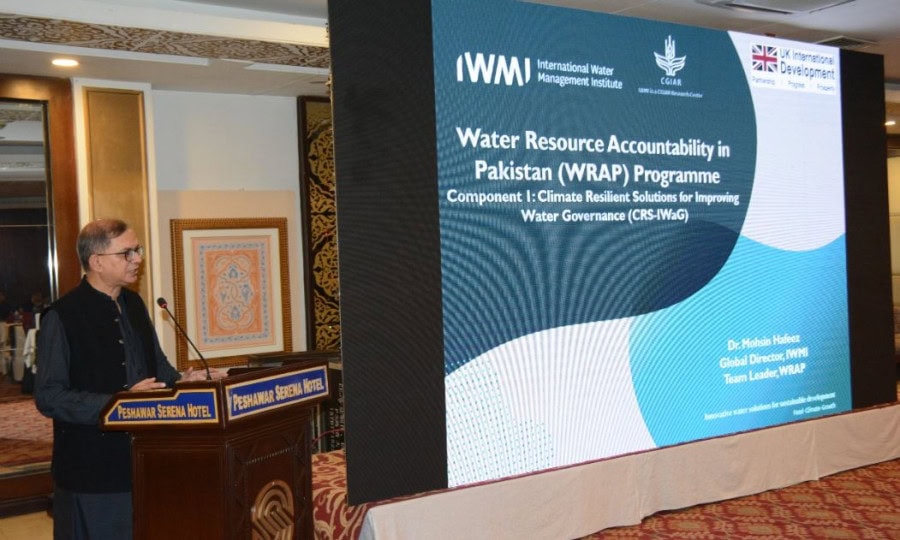PESHAWAR — The International Water Management Institute (IWMI) organized a hands-on training workshop on “Water Accounting and Resource Assessment” in Peshawar the other day to address the critical issues of water scarcity and governance in Pakistan.
This workshop was part of the Water Resource Accountability in Pakistan (wrap) Programme, which is funded by the UK Foreign, Commonwealth & Development Office (FCDO).
The workshop aimed to equip stakeholders with the advanced tools and knowledge necessary to tackle urgent water management challenges in the Khyber Pakhtunkhwa (KPK) Province.
This workshop, part of the WRAP Programme’s Component 1: Climate Resilient Solutions for Improving Water Governance (CRS-IWaG), convened government officials, policymakers, water experts, and academic representatives to enhance their capacity in water accounting and promote evidence-based decision-making.
The participants were introduced to the innovative Water Accounting Plus (WA+) framework, a tool aimed at transforming water management by ensuring equitable water distribution and informed governance, in alignment with the Khyber Pakhtunkhwa Water Act 2020.
The workshop began with an overview of the training objectives and expectations presented by Dr. Muhammad Ashraf, Science Policy Advisor at IWMI Pakistan. During his session, Dr. Ashraf emphasized the importance of equipping participants with practical skills necessary for effective water governance.
Dr. Mohsin Hafeez, Director of Water, Food, and Ecosystems at IWMI, and Team Leader of the WRAP Programme Component 1, emphasized the importance of proactive disaster mitigation. He stated, “If you invest one dollar before a disaster strikes, you can save up to seven dollars spent after the disaster.” He highlighted the role of water accounting in promoting sustainable and cost-effective water management solutions. Drawing from global best practices, including Australia’s advanced water accounting standards, Dr Hafeez presented practical strategies to enhance transparency and efficiency in Pakistan’s water governance.
Engr. Habib Ullah Bodla, Science Policy Advisor at IWMI Pakistan, shared practical examples from Punjab province illustrating how water accounting can improve decision-making for sustainable water management and emphasized the transformative potential of water accounting tools. Dr Umar Waqas Liaqat, Senior Regional Researcher at IWMI, led sessions on the WA+ Framework’s software and tools, providing a foundational understanding of its application in addressing water scarcity challenges.
Dr Waleed Khan, a researcher in Remote Sensing and GIS, Ms Mehwish Khan, a Senior Research Officer in GIS, and Mr Naqash Abbasi, a Senior Research Officer in geoinformatics, conducted interactive sessions and hands-on exercises during the workshop. These activities equipped participants with essential skills, such as extracting key indicators from open-access data and analyzing water components like evapotranspiration. The goal was to provide practical expertise and inspire innovative approaches to water resource management, tackling challenges faced by various sectors.
This training highlighted IWMI’s and the UK government’s commitment to advancing climate-resilient water governance. The workshop represented a significant step toward achieving sustainable water management across Pakistan by raising awareness of water accounting as a cornerstone for effective policymaking and resource allocation.
The event concluded with participants expressing enthusiasm about applying their new skills in their respective roles, furthering the goal of sustainable water management throughout Pakistan.










